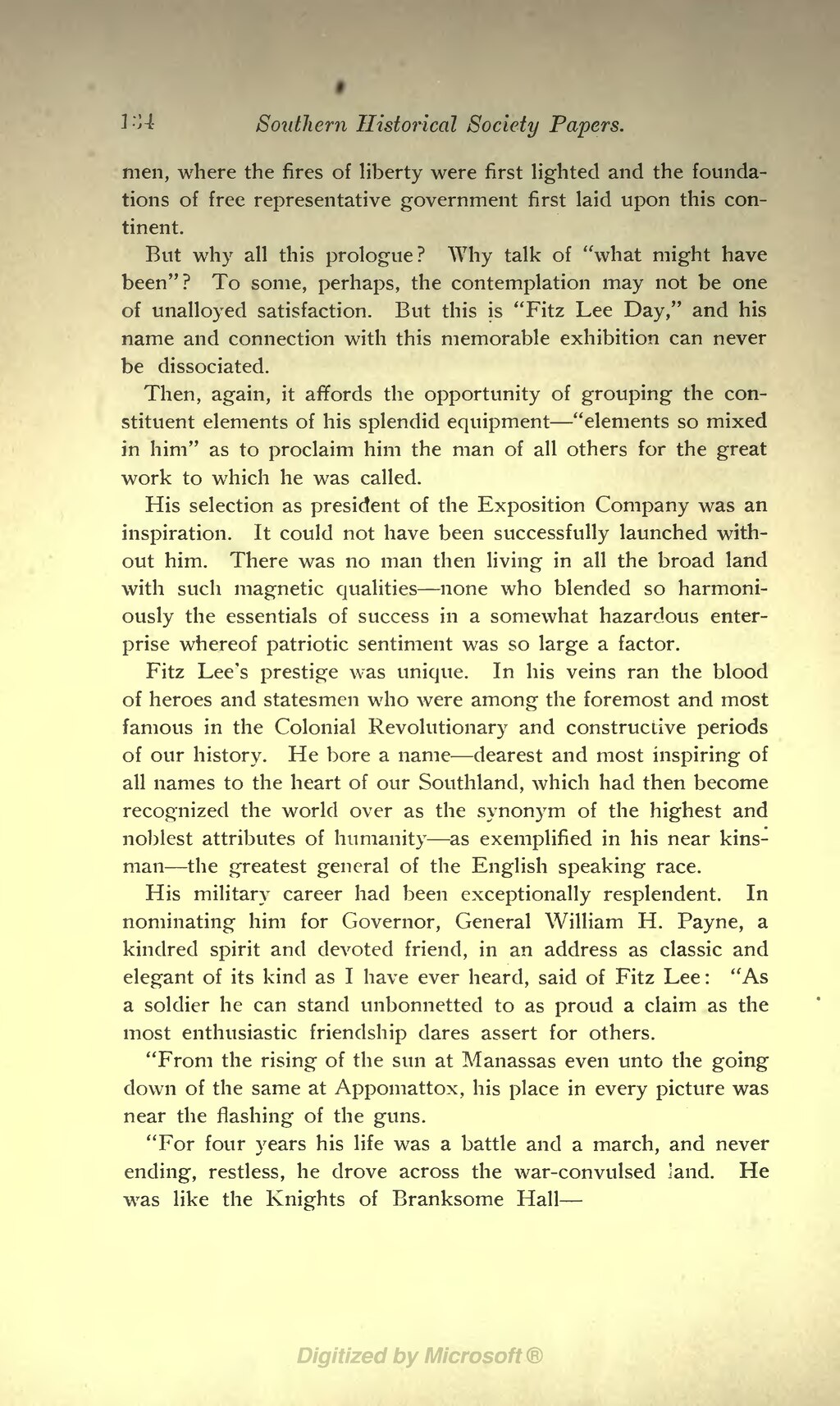country where the fires of liberty were first lighted and the foundations of free representative government first laid upon this continent.
But why all this prologue? Why talk of "what might have been"? To some, perhaps, the contemplation may not be one of unalloyed satisfaction. But this is "Fitz Lee Day," and his name and connection with this memorable exhibition can never be dissociated.
Then, again, it affords the opportunity of grouping the constituent elements of his splendid equipment "elements so mixed in him" as to proclaim him the man of all others for the great work to which he was called.
His selection as president of the Exposition Company was an inspiration. It could not have been successfully launched without him. There was no man then living in all the broad land with such magnetic qualities none who blended so harmoniously the essentials of success in a somewhat hazardous enterprise whereof patriotic sentiment was so large a factor.
Fitz Lee's prestige was unique. In his veins ran the blood of heroes and statesmen who were among the foremost and most famous in the Colonial Revolutionary and constructive periods of our history. He bore a name dearest and most inspiring of all names to the heart of our Southland, which had then become recognized the world over as the synonym of the highest and noblest attributes of humanity as exemplified in his near greatest general of the English speaking race.
His military career had been exceptionally resplendent. In nominating him for Governor, General William H. Payne, a kindred spirit and devoted friend, in an address as classic and elegant of its kind as I have ever heard, said of Fitz Lee: "As a soldier he can stand unbonnetted to as proud a claim as the most enthusiastic friendship dares assert for others.
"From the rising of the sun at Manassas even unto the going down of the same at Appomattox, his place in every picture was near the flashing of the guns.
"For four years his life was a battle and a march, and never ending, restless, he drove across the war-convulsed land. He was like the Knights of Branksome Hall –
